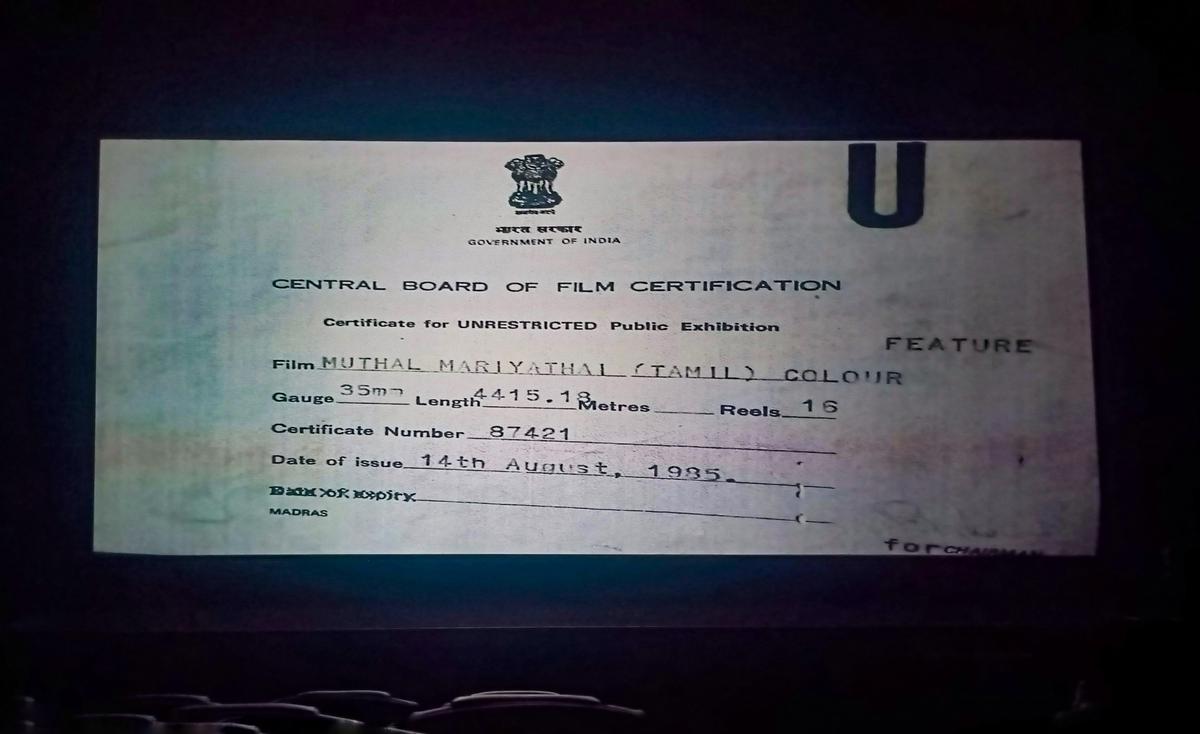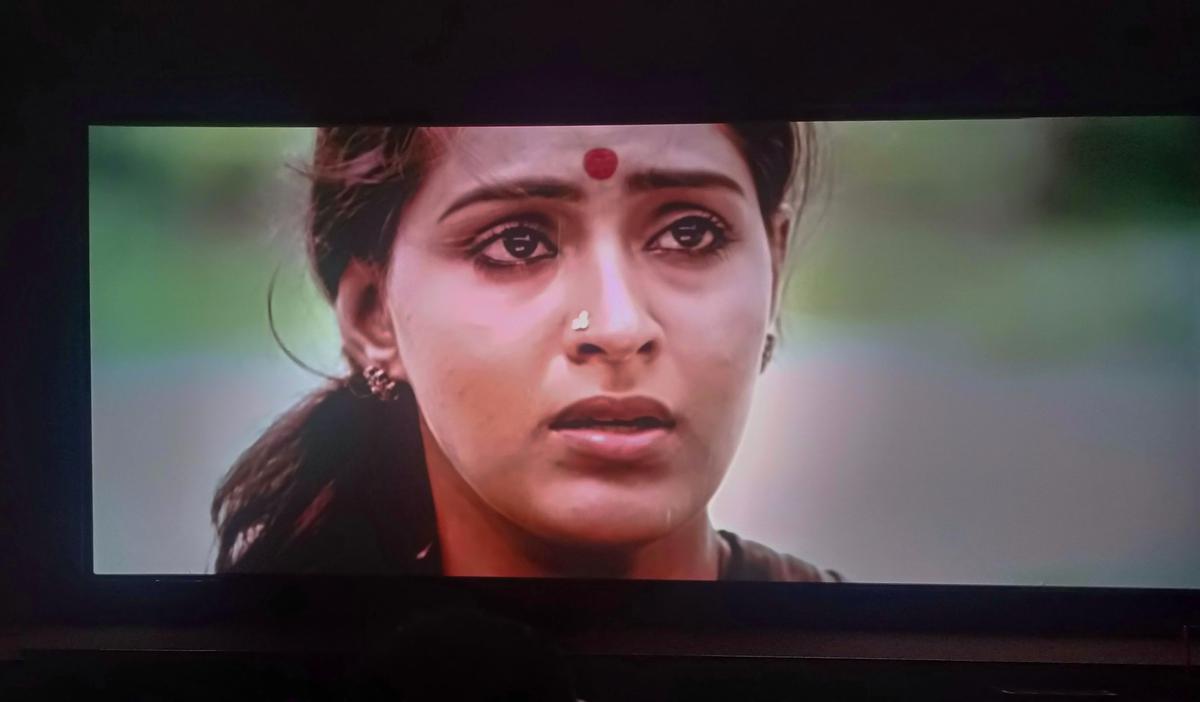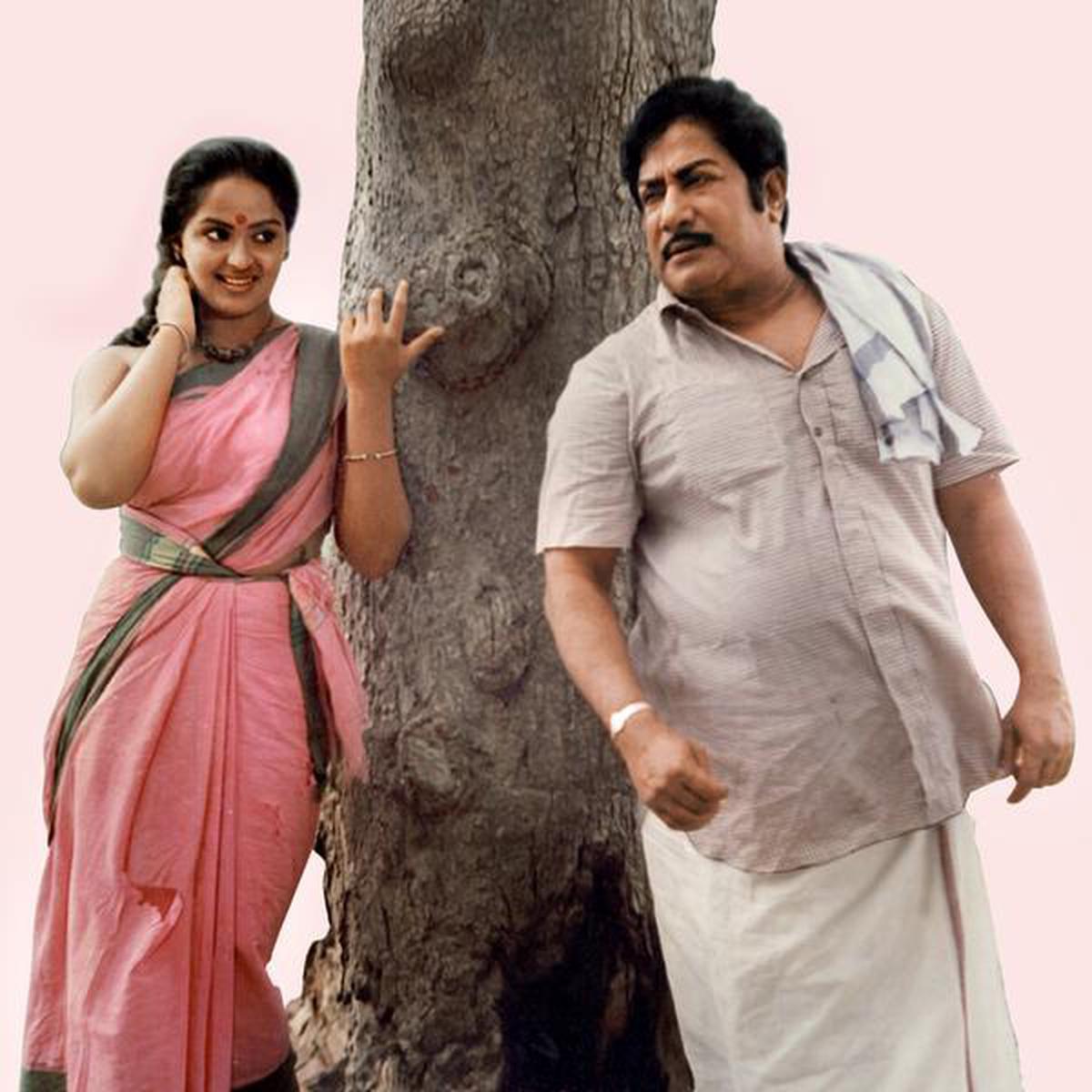Watching Sivaji Ganesan’s ‘Muthal Mariyathai’ on the big screen after 38 years
Music maestro Ilaiyaraaja and late singing sensation Malaysia Vasudevan welcome you with Poongatru Thirumbuma as the frame closes in on an aged man on his deathbed. Within minutes, you feel a lump building in your throat. In the very next scene, a flashback, he steps out of his toxic household to take in the fresh country air. He looks at the birds flying above and the trees that seem like they are dancing to Ilaiyaraaja’s ever-melodious score. Life seems good. The wide 16: 9 screen turns into a portal to a hamlet in the 1980s. A few more minutes into the film, we hear the full version of Poongatru… and the lyrics go, “Aaathaadi, manasukulla kaathaadi parakkudhe…” Watching Muthal Mariyathai feels like a kite fluttering in our hearts.
38 years since its silver-screen debut, Bharathiraja’s Muthal Mariyathai is now back on the big screen, in a new digitally-remastered version, thanks to the efforts of Rama P Jeyakumar, an engineer and ardent Sivaji fan who bought the rights from Bharathiraja and invested more than 21 lakhs into the restoration. This Friday, an unassuming evening at a multiplex turned into an experience for a lifetime to an interesting mix of demography — from a young couple to an ardent fan who had to sing the ‘Paattu satham kekkalaya…’ section of the song Eratha Malai Mele loudly. But no matter who, one can assume that everyone in the hall was moved by the film’s climax, as it did 38 years ago.

The censor certificate of ‘Muthal Mariyathai’
| Photo Credit:
Bhuvanesh Chandar
“The last ten minutes feels like poetry,” says G Kandasamy, a retired government employee, who vividly remembers a packed theatre audience in 1985 giving a standing ovation after the climax. Muthal Mariyathai tells the story of how Malaichami (Sivaji Ganesan), a middle-aged man married to an insolent Ponnatha (Vadivukkarasi), falls in love with a young boatwoman named Kuyil (Radha). The story balloons when we follow more characters like Malaichamy’s nephew Chellakannu (Deepan) and his lady love Sevuli (Ranjini), the daughter of the cobbler Sengodan (Veerasami); Rasamma (Aruna), daughter of Malaichami and Ponnatha; Rasamma’s husband (Ramanathan), and a local rope-spinner (Janagaraj). The interpersonal equations, the secrets some of them carry, the twist of fates, and what it does to the larger narrative make for 150 minutes of engaging cinema. The ‘ manvasanai’ (petrichor) that Bharathiraja brings in, with cinematographer B. Kannan’s elegant visuals, is a treat.
Lokesh T, a 28-year-old film enthusiast, is seeing the film for the first time, and he’s captivated by Bharathiraja’s narrative style. “This format of narration is what many filmmakers are doing around the world. We are unaware of our own legacy,” he says. Lokesh calls to attention a brilliant shot that has water droplets smearing the pottu of a woman when she loses her long-lost lover (in Tamil culture, the pottu signifies a woman’s marital status). From the shot of Sevuli collecting moonlight from a pond and dropping it on the river water to the symbolic cut in the song Antha Nilava Than that likens the feeling of Chellakannu’s breath on her body to that of ants on a branch, there are plenty of aesthetic images to relish.
Kennedy, 57, a Chennai-based construction supervisor, couldn’t wait to re-watch the classic on the big screen in a multiplex, 38 years after he watched the first-day-first-show at the now-demolished Shanthi theatre. “I have watched it innumerable times before and I will keep watching it.” It’s Sivaji’s acting that captivates Kennedy. “He must have been nearly 60 when he acted in this film, but he doesn’t look old at all! He looks 40 at best,” he says. The age gap between Malaichami and Kuyil is a major focal point in this story. There’s even a running gag about this; Malaichami gets offended by Kuyil calling him an old man, and the latter challenges him to lift a big rock to prove his youth. This makes for some crackling comedy in the beginning, but when a 57-year-old Sivaji eventually lifts the rock at a low-key moment in the screenplay, the crowd erupts.

Radha as Kuyil in ‘Muthal Mariyathai’
| Photo Credit:
Bhuvanesh Chandar
As Kandasamy says, Bharathiraja seems to have walked successfully on a very thin line when it comes to the film’s take on caste, age, and infidelity. While this film might attract some criticism if it were made today, what it tried to achieve in the 80s is beyond revolutionary. “While the romance between an old man and a young lady itself was an unseen concept, it is also about an affair involving a married person from the upper caste and a young lady belonging to a marginalised caste,” says 40-year-old banker Naresh who is catching this film for the first time on the big screen. “It speaks of the social discrimination that happened then; Radha doesn’t wear a blouse because people of a certain caste or class weren’t allowed to wear a blouse.”
This is right up the alley for a filmmaker who has given films like Vedham Pudhidhu (1987) that spoke about casteism, says actor and film historian Mohan Raman. “He has shown a lot of guts and gumption in presenting such social themes in many of his films.” When it comes to Sivaji, Mohan adds it’s impossible to see where Muthal Mariyathai stands in his vast filmography when it comes to acting. The film, however, takes a significant place in his career as a ‘comeback’ movie. “When everybody thought his career was over and that he had become too old, he came back and hit a century.”

A still from ‘Muthal Mariyathai’
| Photo Credit:
Special Arrangement
In the age of content boom thanks to streaming platforms, re-releases such as Muthal... do allow a newer generation of film watchers to rediscover classics and experience the greats of the art form once again. “The preservation of films is necessary; I wish all prints that are available now are digitally restored and remastered,” says Mohan adding that even though such remastered versions will end up on OTTs, it only opens the film to an audience who are no longer keen on satellite television.
Mohan also has a long list of films by Nadigar Thilagam that can find newer audiences today. “ Uyarndha Manithan, Deiva Magan, and Andha Naal are films with relevant social themes. Every film of AP Nagarajan, like Thiruvilaiyadal and Thillana Mohanambal, is a classic.” For patriotic themes, he suggests films like Kappalottiya Thamizhan and Veerapandiya Kattabomman; for comedy, Ooty Varai Uravu, Galatta Kalyanam, and Sumathi En Sundari can be a good starting point.
All said, watching the remastered Muthal Mariyathai on the big screen is an experience to behold; a kite fluttering in our hearts indeed!
Muthal Mariyathai is currently running in theatres
For all the latest Entertainment News Click Here
For the latest news and updates, follow us on Google News.
